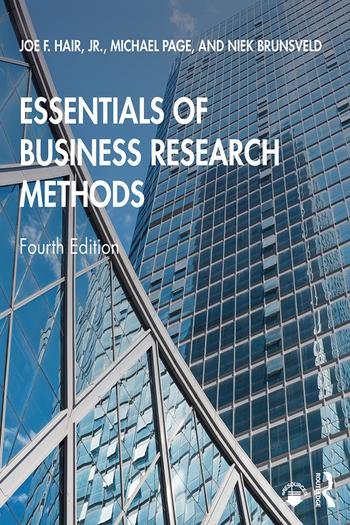Answered step by step
Verified Expert Solution
Question
1 Approved Answer
Evaluating your data involves examining it in terms of reliability, relevance, expertise, and biases. Reliability relates to how dependable the data are-how current and

Evaluating your data involves examining it in terms of reliability, relevance, expertise, and biases. Reliability relates to how dependable the data are-how current and representative. The relevance of the data relates to how well information applies to your specific business problem. Expertise relates to the skill and background of the researchers to address your business problem. Biases are tendencies to see issues from particular perspectives. In this exercise, you will identify limitations to various types of data sources. You will focus on four types of limitations: reliability, relevance, expertise, and biases. For each statement, select the appropriate limitation category. 1. You've found an article in a scholarly journal about e-commerce. It's the right topic, but the information is nearly ten years old, and you're not sure if it helps you analyze e-commerce trends of today. (Click to select) 2. You've found a really forward-looking, research-based white paper about e-commerce from a major software vendor. As a result, you wonder how objective the white paper is. (Click to select) 3. You've found a really interesting blog article about new forms of social commerce. It's written by an expert in the area, but you know that she's paid by several prominent software companies to promote their brands. (Click to select) 4. You just read an article about e-commerce in a business periodical. Like a lot of other information you've found, it focuses on large companies and you're not sure how well it applies to your interest in small businesses. (Click to select) 5. A current book about e-commerce provides many principles and cases of Fortune 500 companies. You're not sure how well this info applies to your interest-identifying e-commerce strategies for a small business. (Click to select) 6. You conducted your own survey of small business owners. As you're analyzing your data, you realize that most respondents skipped a lot of questions and seemed to give incomplete answers. (Click to select) 7. A series of blog posts provide specific information about developing e-commerce strategies for a small business. The information seems helpful, but you're not sure how qualified the blog author is to offer advice. (Click to select) 8. You just read a newspaper article about e-commerce strategies for small business owners. You're concerned that the newspaper writer has no real experience working in small businesses or with e-commerce. (Click to select) (Click to select) Biases Relevance Reliability Expertise < Prev 1 of 1 Next
Step by Step Solution
There are 3 Steps involved in it
Step: 1

Get Instant Access to Expert-Tailored Solutions
See step-by-step solutions with expert insights and AI powered tools for academic success
Step: 2

Step: 3

Ace Your Homework with AI
Get the answers you need in no time with our AI-driven, step-by-step assistance
Get Started


